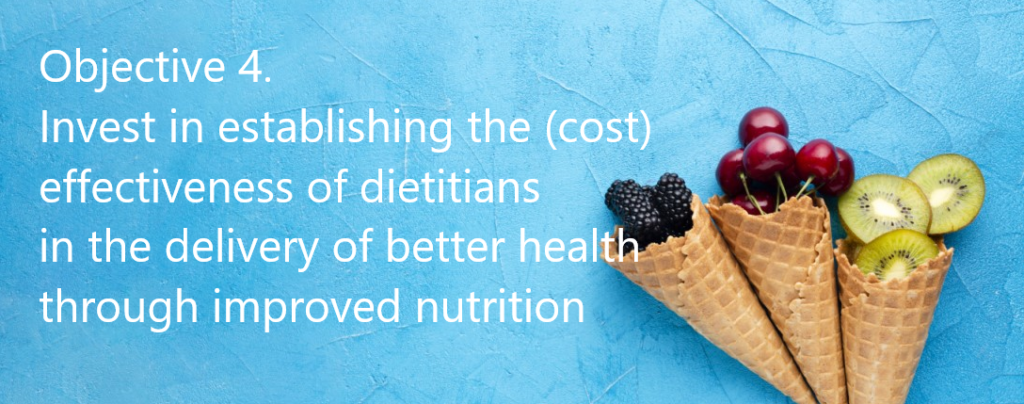This progress report is the third in a series that document progress on EuDAP and EFAD’s strategic plan, adopted in 2015.
EuDAP Full Report 2018 is the first one created in the form of an online database. The data in this report are based on European dietetic activities from 2018, which were collected in the 2019 EuDAP Survey.
EuDAP Survey 2019
Four hundred and sixty-six dietitians, from different European countries (see the countries list), completed the online questionnaire with questions regarding their activities in the year 2018. The respondents represented 30 different National Dietetic Associations and 31 Higher Education Institutes.
Results
EuDAP Survey 2019 confirmed that European dietitians are following the life-course approach to the prevention and control of diet-related NCDs and malnutrition in all its forms. As suggested by FNAP [1], the approach starts by addressing maternal nutritional status and health before and during pregnancy and continues with proper infant feeding practices, including the promotion of breastfeeding. Action to encourage healthy diets for children, adolescents, and young people are reinforced and sustained by the promotion of a healthy diet during the working life, nutrition for healthy aging, and nutritional care for older adults.
Search for dietetic initiatives targeted to specific audience:
| Health professionals (76) | Educators (20) |
| General Public (44) | Policy Makers (33) |
| Children and Adolescents (38) | Local Community (21) |
| Parents (21) | Employees (10) |
| Special Groups (27) | Industry (10) |
| Senior Citizens (18) | Other (4) |
EuDAP Survey 2019 results represent only a small number of projects being undertaken by dietitians in Europe but they already cover a range of activities from all EuDAP objectives

First EuDAP objective is consistent with the first FNAP 2015-2020 objective which calls to create healthy food and drink environments. We’ve collected 32 dietitians’ activities around this topic. Initiatives were targeted to various groups from different environments, from big data analysis to local activities.
Read about dietetic activities around the 1st Objective

The second EuDAP objective seems to be the main area of European dietitians’ work. In the 2019 EuDAP survey we’ve collected 67 initiatives which aim was to support the society in healthy food choices through promotion, education, and nutritional counseling.
Read about dietetic activities around the 2nd Objective

Read about 65 dietetic activities around the 3rd Objective

Read about 52 dietetic activities around the 4th Objective

Dietitians assigned 31 activities to the fifth EuDAP objective, which is consistent with the FNAP objective of strengthening governance and networks. Dietitians initiate and take part in such activities both on the European and national arenas.
Read about dietetic activities around the 5th Objective
Conclusions
The purpose of the EuDAP Survey is to ensure information exchange between the NDA’s and HEIs in different countries on how they are contributing to the EuDAP objectives whilst also encouraging a methodical approach to data collection and data storage and systematic analysis. EuDAP is designed to position dietitians as valuable and effective health professionals that can contribute to improved health outcomes across patient groups from birth to old age and noteworthy examples and projects from across the European Region have been identified in this report, to inform policy and practice. The capability and capacity for dietitians to make a difference in many countries and at local, national or European level is not always recognised or valued for many diverse reasons. EuDAP is therefore designed to be a mechanism for NDA’s to encourage and enable their dietitians to demonstrate to key stakeholders their ability to make a significant impact in a ‘political language’ recognised by governments, employers and others.
This report provides confirmation that EFAD does have sufficient ‘evidenced information’ to provide key stakeholders at European or NDA/HEI level with information about the profession and dietitians’ contribution to implementing FNAP.
FNAP 2015-2020 suggests that
„Member States should work together to develop common tools, share experiences, improve the availability of data and enhance capacity for monitoring and surveillance”
and the EuDAP is exactly responding to those needs. The EuDAP Survey is giving better results every year and we hope that it will become the tool that will be commonly used by EFAD members.
EFAD’s further steps will include the development of EuDAP Database, which will be used by EFAD members to learn from each other to work even better for the shared vision of a European Region in which the negative impacts of preventable diet-related NCDs and malnutrition in all its forms – including overweight and obesity – have been dramatically reduced, and all citizens have healthier diets throughout their lives.
[1] WHO Europe. European Food and Nutrition Action Plan 2015-2020
